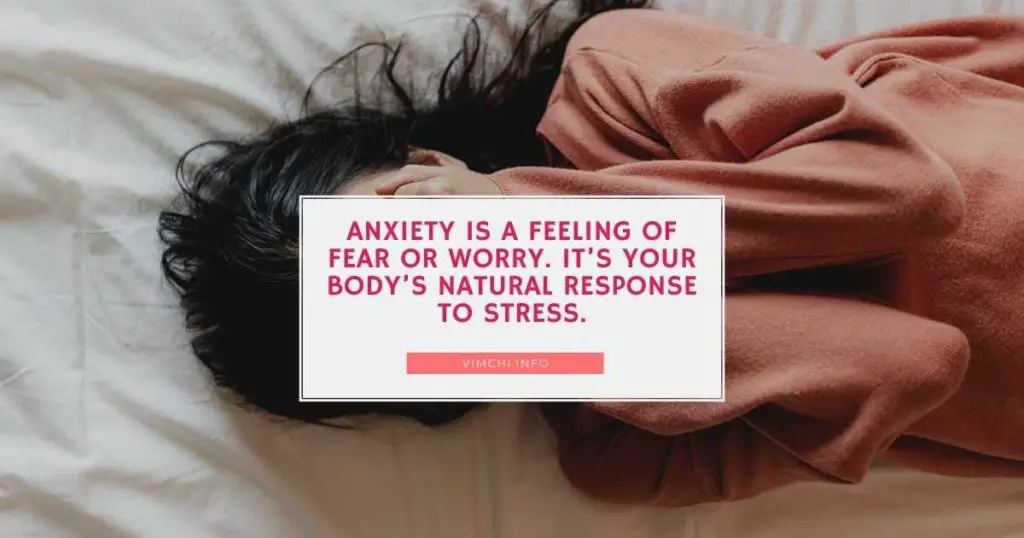
Some people consider it as a part of their busy world. Anxiety can be beneficial for you because it makes you aware of any danger. It can also motivate you to be ready and take calculated risks. If it occurs daily, it’s time to act. Some medicines can help. But what natural remedies can you take for anxiety?
Keep reading to know more.
What Natural Remedies Can You Take for Anxiety?
Anxiety is a feeling of fear or worry. It’s your body’s natural response to stress. The symptoms would include rapid breathing, trouble concentrating, increased heart rate, and restlessness.
Each person experiences different symptoms, though. You may feel a butterfly in your stomach. Others may experience panic attacks or painful thoughts.
As mentioned, anxiety can be beneficial. However, if it occurs daily, then you should have it checked.
Thankfully, some treatments can help you cope with it. There are antidepressants and sedatives that you can take. However, if you want to take the alternative route, there are natural remedies you can follow.
1. Don’t be a Couch Potato
When was the last time you hit the gym or go out to walk or run? Can’t remember? Then, this is the best time for you to think about your physical health.
Getting regular exercise can be helpful for anxious people. This study showed that people with anxiety disordered reported that they were protected against anxiety symptoms.
Exercise can get your heart rate up. As a result, it changes your brain chemistry to boost anti-anxiety neurochemicals, such as serotonin, endocannabinoids, and gamma-aminobutyric acid (GABA).
Doing regular exercise can enhance your concentration and willpower.
HIIT is a great form of exercise to increase your heart rate. But any exercise will do.
Pilates and yoga are also great for your anxiety.
2. Improve Your Anxiety by Saying No to Booze
Alcohol is a natural sedative. However, this research suggests that alcohol use disorder and anxiety disorders occur hand-in-hand.
Heavy drinking can interfere with the right amount of neurotransmitters responsible for positive mental health. The imbalance can lead to some symptoms of anxiety.
3. Throw Those Cigarettes Away
Smokers tend to smoke during stressful times. When you use a cigarette when stressed out, your anxiety may subside. However, it may worsen over time.
If you smoked earlier in your life, your risk of developing anxiety disorder is higher. This research showed that nicotine can alter some pathways in the brain that are linked to anxiety.
Smoking also increases your health insurance premiums.
If you’ve been trying to quit smoking but are unsuccessful, you should consult with your doctor. There are various ways to help you stop this nasty habit.
One is to take up habits that can distract you to create a positive environment that can work for your smoke-free life.
4. Limit a Cup of Java

A cup of coffee in the morning may be good for you. But if you drink it every hour, then it can be bad. This is especially true if you’re suffering from anxiety symptoms. Hence, try limiting your caffeine intake.
Keep in mind that caffeine can cause jitters, which is not good if you’re anxious. Caffeine can also cause panic attacks.
Because caffeine can alter your brain chemistry, it can trigger anxiety.
It blocks adenosine in the brain to increase your alertness. But it also makes you feel tired while triggering adrenaline release.
You don’t have to stop drinking your favorite Java. Moderate intake of caffeine can still be good. However, if you want to cut out caffeine because of how it is doing to your mental health, you need to start slowly.
If you are used to drinking more than 3 cups of coffee every day, don’t completely cut out your caffeine. Instead, reduce the amount. For instance, you can drink two cups per day for 1 week. Then reduce the amount the following week.
When the withdrawal is gradual, you’re not likely to experience severe caffeine withdrawal symptoms, such as headache, nausea, and vomiting.
5. Get Some Rest
Sleep is a number one healer. It improves your immune function and it’s vital for your mental health.
Most adults are getting 6 hours of sleep each night. But the CDC recommends getting between 7 and 9 hours of sleep.
If you have a hard time sleeping, you may find these natural remedies helpful.
6. Be in the Moment
Practicing mindfulness is another natural remedy you must try to hope you get a sense of calmness and contentment. When you’re calm, you’re likely to tolerate your thoughts and feelings, instead of feeling anxious.
Meditation can help you practice mindfulness. It relieves stress and anxiety. It’s also the primary goal of cognitive-behavioral therapy.
When you practice meditation, you can also practice deep breathing. Fast breathing is common when you’re having an anxiety attack. If your heart rate is fast, it can lead to dizziness and lightheadedness.
Try restoring your normal breathing patterns by deep breathing.
7. Drink Tea
But make sure that the tea doesn’t have caffeine content, such as these teas. For example, a cup of chamomile tea can calm your nerves while it promotes sleep.
It’s one reason experts highly recommend drinking it before bedtime.
Summary
What natural remedies you can take for anxiety? Even though there are effective medicines to treat anxiety symptoms, you can always rely on the natural alternatives mentioned above.
Speak Now ... Or Forever Hold Your Peace